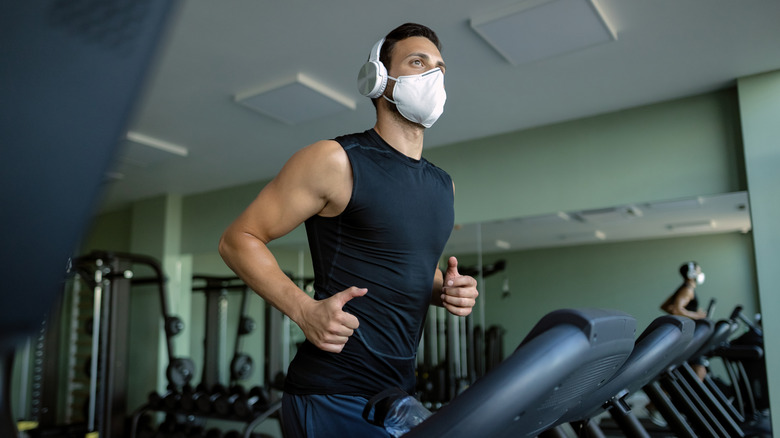Is It Safe To Exercise After COVID-19?
If you had COVID-19, it may have affected a variety of aspects of your life including your job, your relationships, and your daily activities. It's understandable that after recovery, you may be eager to jump back into your regular routine but when it comes to working out, there are a few things you may need to consider.
COVID-19 affects people in different ways and the recovery time for each person can differ as well. Michael Peluso, a clinical fellow at the University of California, San Francisco and team member of the Long-term Impact of Infection with Novel Coronavirus study (LIINC) told the Wall Street Journal, "The thing that has really stood out to me the most about this viral infection is that it's really remarkable how much variability there is on the recovery end."
The variety and intensity of COVID symptoms can vary but many people experience fever, fatigue, dry cough, and shortness of breath, with some of these symptoms lingering for an extended period of time (via WebMD). With the impact that COVID-19 potentially has on your heart, lungs, and overall physical health, when in your recovery is it safe to start working out once again?
When to get back into exercise after COVID-19
While it can be safe to exercise after COVID-19, it's of the utmost importance to ease back into your routine. While some people will be able to jump right back into their regular exercise regime, others may experience lingering effects of COVID-19 and may need to be extra patient with themselves, per Cleveland Clinic.
According to guidelines determined by the American College of Cardiology (ACC), those who experienced mild symptoms can return to working out after they've recovered. However, those who were hospitalized for suspected heart-related problems due to COVID-19, are experiencing lingering heart or lung-related symptoms, or who had a heart condition before developing COVID-19 should consult their doctor to determine whether or not it's safe to begin their exercise routine once again. The ACC also advises that people who developed myocarditis avoid exercising for 3-6 months, and that people who experienced any heart or lung-related problems during COVID-19 check with their doctor before resuming intense exercise, even if the symptoms have resolved (via Healthline).
Jennifer Scherer, president and medical exercise specialist at Fredericksburg Fitness Studio in Virginia told Healthline, "If you return to exercise too soon, you are not allowing your body the strength to fight the virus." Before jumping back into any intense physical activity, she suggests to "Listen to your body, ease back into walking and gentle mobility training. As you feel your body getting stronger, you can add in weight training and higher-intensity cardiovascular exercise."


